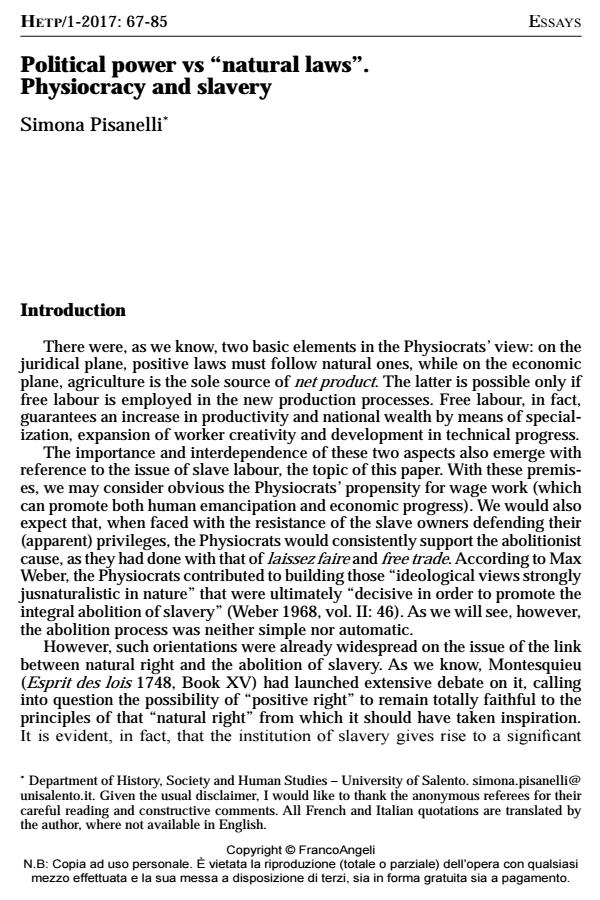Political power vs "natural laws". Physiocracy and slavery
Titolo Rivista HISTORY OF ECONOMIC THOUGHT AND POLICY
Autori/Curatori Simona Pisanelli
Anno di pubblicazione 2017 Fascicolo 2017/1
Lingua Inglese Numero pagine 19 P. 67-85 Dimensione file 222 KB
DOI 10.3280/SPE2017-001003
Il DOI è il codice a barre della proprietà intellettuale: per saperne di più
clicca qui
Qui sotto puoi vedere in anteprima la prima pagina di questo articolo.
Se questo articolo ti interessa, lo puoi acquistare (e scaricare in formato pdf) seguendo le facili indicazioni per acquistare il download credit. Acquista Download Credits per scaricare questo Articolo in formato PDF

FrancoAngeli è membro della Publishers International Linking Association, Inc (PILA), associazione indipendente e non profit per facilitare (attraverso i servizi tecnologici implementati da CrossRef.org) l’accesso degli studiosi ai contenuti digitali nelle pubblicazioni professionali e scientifiche.
As we know, there are two basic elements in the Physiocrats’ view: on the juridical plane, the belief that positive laws follow natural ones; on the economic plane, the idea that agriculture is the sole source of net product. The importance and interdependence of these two aspects also emerge with reference to the issue of slave labour and to the debate concerning its abolition. This article attempts to inquire into the ambiguities of the economic ideas of the Physiocrats, who, in theory, favored the use of free labour, but in practice were forced, out of political realism, to accept slave labor - even though it was seen as the outcome of a "sick" law. In particular, we will show that Le Mercier de la Rivière and Pierre Poivre, Physiocrats and colonial Intendants, gave up to the idea of the abolition of slavery, thus legitimising its continuation.
Parole chiave:Slavery, Free Labor, Physiocracy, Le Mercier de la Rivière, Pierre Poivre.
Jel codes:B11, B31
Simona Pisanelli, Political power vs "natural laws". Physiocracy and slavery in "HISTORY OF ECONOMIC THOUGHT AND POLICY" 1/2017, pp 67-85, DOI: 10.3280/SPE2017-001003